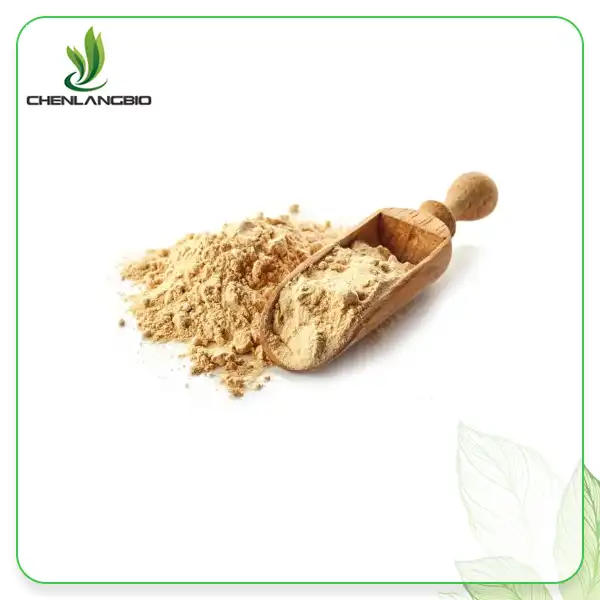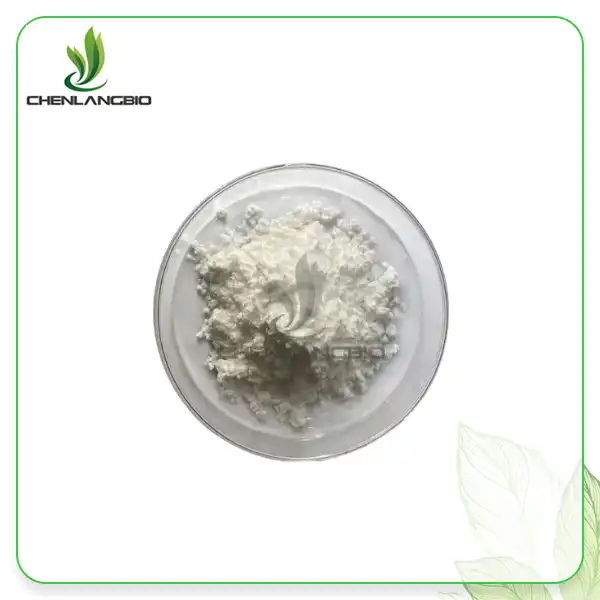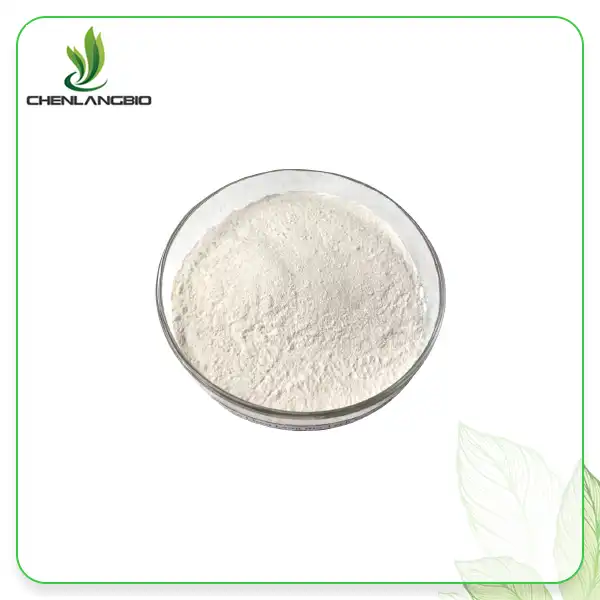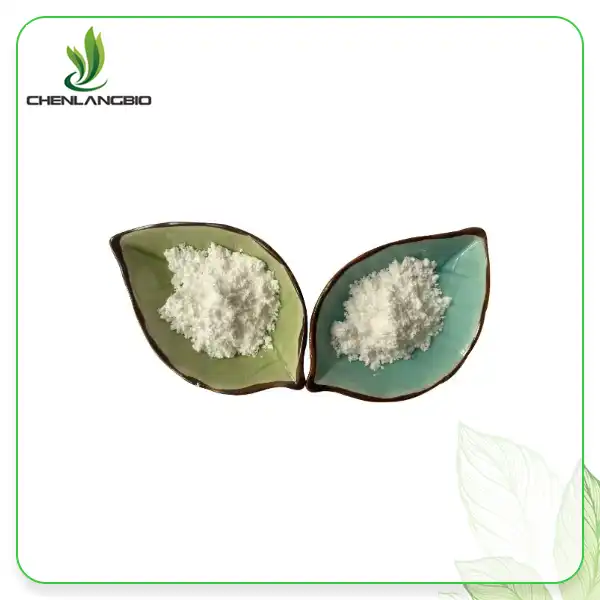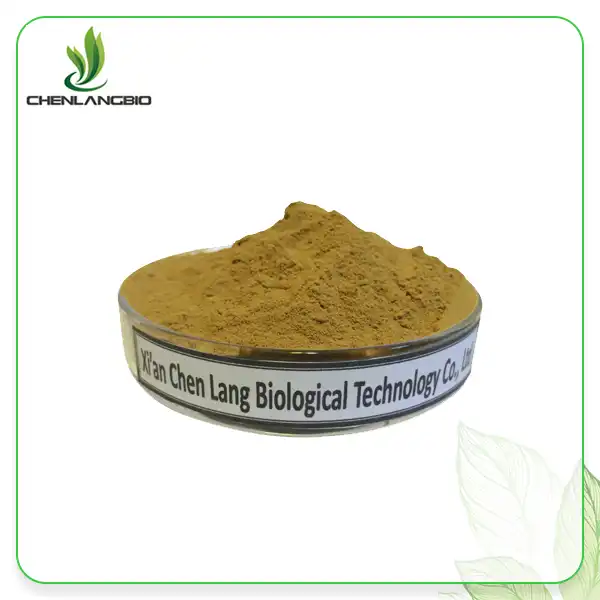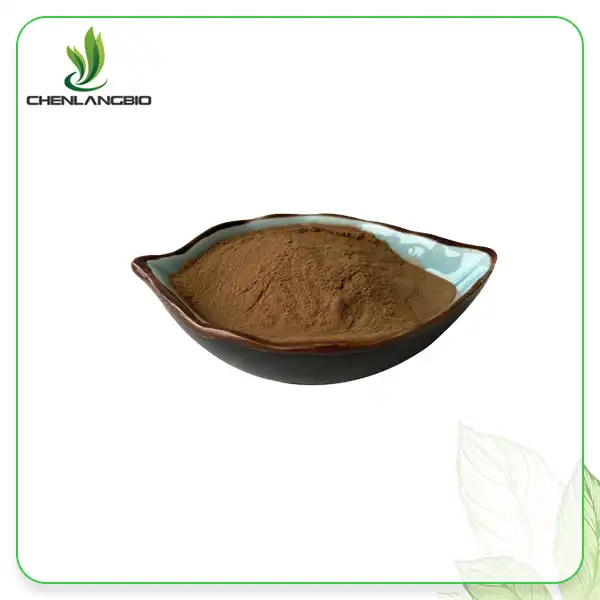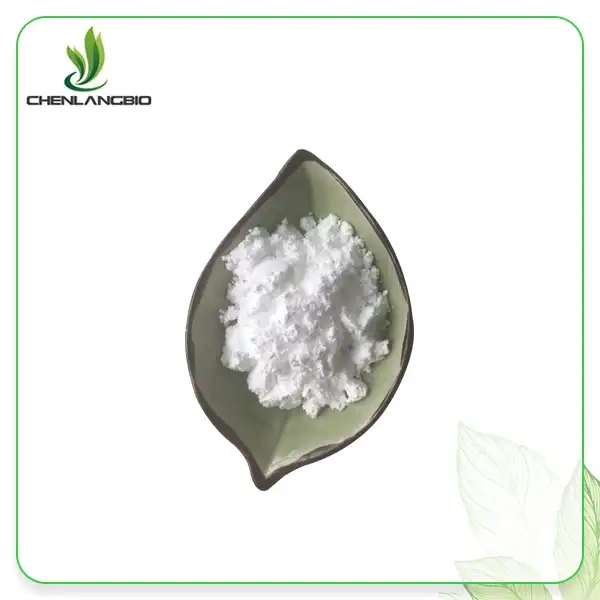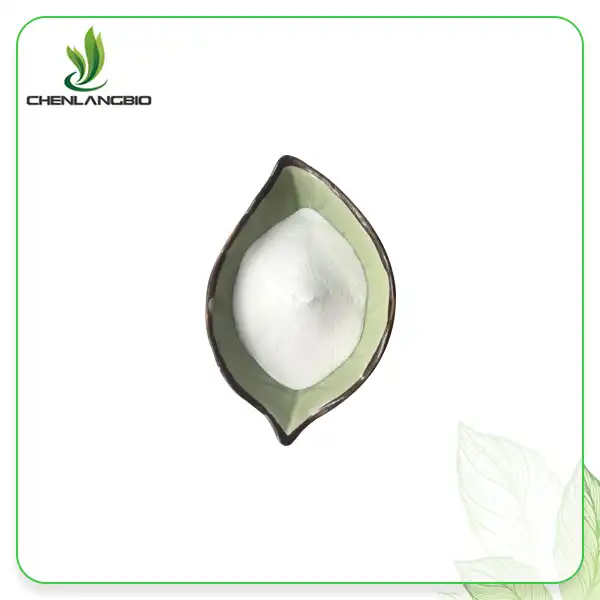How Does Diosmin Powder Reduce Venous Hyperpressure Effectively?
2025-07-05 10:57:35
Venous hyperpressure represents a significant challenge in vascular health, affecting millions of individuals worldwide through conditions such as chronic venous insufficiency, varicose veins, and related circulatory disorders. Diosmin powder, a naturally occurring flavonoid glycoside extracted from citrus fruits, has emerged as a promising therapeutic solution for addressing this complex vascular issue. This bioactive compound works through multiple mechanisms to restore proper venous function, enhance vascular tone, and reduce the pathological pressure buildup that characterizes venous disorders. Understanding how Diosmin Powder effectively reduces venous hyperpressure requires examining its sophisticated molecular interactions with vascular tissues, its ability to strengthen venous walls, and its comprehensive approach to improving overall circulatory dynamics. Through targeted action on endothelial function, lymphatic drainage, and microcirculatory processes, this remarkable compound offers hope for patients seeking effective management of venous-related conditions.
Mechanisms of Venous Pressure Reduction Through Diosmin Powder
Vascular Smooth Muscle Enhancement and Venous Tone Optimization
Diosmin Powder exerts its primary therapeutic effect through direct interaction with vascular smooth muscle cells, fundamentally altering the contractile properties of venous walls. The compound works by delaying the vasoconstrictor impact of norepinephrine on venous tissue, creating a more sustained and controlled venous contraction response. This mechanism is particularly important because norepinephrine, as a primary neurotransmitter in the sympathetic nervous system, normally causes rapid and sometimes excessive venous constriction. By modulating this response, Diosmin Powder helps maintain optimal venous tone without creating the irregular pressure spikes that contribute to venous hyperpressure. The flavonoid structure of diosmin allows it to integrate into cellular membranes and influence calcium channel activity, which is crucial for smooth muscle contraction. This results in more efficient venous return mechanisms and significantly reduces the venous capacitance that leads to blood pooling and subsequent pressure elevation.
Endothelial Function Restoration and Nitric Oxide Modulation
The endothelial layer of blood vessels plays a crucial role in maintaining vascular health, and Diosmin Powder specifically targets endothelial dysfunction that contributes to venous hyperpressure. Through its antioxidant properties, the compound protects endothelial cells from oxidative stress and inflammatory damage that can compromise their function. Diosmin powder enhances the production and bioavailability of nitric oxide, a vital vasodilator that helps regulate vascular tone and pressure. By improving endothelial-dependent vasodilation, the compound ensures that venous vessels can adapt appropriately to changing hemodynamic conditions. The flavonoid also reduces the expression of endothelial adhesion molecules, which are inflammatory markers that indicate endothelial damage and dysfunction. This protective effect extends to preventing the adhesion and activation of leukocytes at the capillary level, thereby reducing inflammatory responses that can exacerbate venous pressure problems. The restoration of healthy endothelial function through Diosmin Powder supplementation creates a foundation for long-term venous health improvement.
Capillary Resistance Enhancement and Microcirculatory Protection
At the microcirculatory level, Diosmin Powder demonstrates remarkable efficacy in strengthening capillary walls and reducing hyperpermeability that contributes to venous congestion. The compound increases capillary resistance by reinforcing the structural integrity of these tiny blood vessels, preventing excessive fluid leakage into surrounding tissues. This protective mechanism is essential because capillary hyperpermeability leads to tissue edema and increased interstitial pressure, which can impede venous return and exacerbate hyperpressure conditions. Diosmin Powder achieves this protection by stabilizing collagen and elastin fibers in capillary walls, making them more resistant to mechanical stress and inflammatory damage. Additionally, the compound reduces the release of inflammatory mediators, particularly oxygen free radicals and prostaglandins, which are known to increase capillary permeability. By maintaining optimal capillary function, Diosmin Powder ensures that the microcirculatory system can effectively support venous return without contributing to pressure buildup in larger venous vessels.
Lymphatic System Enhancement and Fluid Balance Regulation
Lymphatic Contractility Improvement and Drainage Optimization
Diosmin Powder significantly enhances lymphatic system function, which plays a vital role in maintaining proper fluid balance and reducing venous pressure. The compound increases both the frequency and intensity of lymphatic contractions, creating more efficient drainage of excess interstitial fluid that would otherwise contribute to venous congestion. This enhanced lymphatic activity is particularly important in patients with chronic venous insufficiency, where impaired lymphatic drainage often compounds the problem of venous hyperpressure. Diosmin Powder works at the cellular level to improve the contractile apparatus of lymphatic smooth muscle, resulting in stronger and more coordinated propulsive waves that move lymph fluid toward the central circulation. The compound also increases the total number of functional lymphatic vessels by promoting the opening of collateral lymphatic pathways that may have been dormant or poorly functioning. This expansion of the lymphatic network provides additional routes for fluid drainage, reducing the burden on the venous system and helping to normalize pressure gradients throughout the circulatory system.
Lymphatic Capillary Structure Modification and Pressure Reduction
The structural modifications that Diosmin Powder induces in lymphatic capillaries represent another crucial mechanism for reducing venous hyperpressure. The compound decreases the diameter of lymphatic capillaries while simultaneously reducing intralymphatic pressure, creating more efficient conditions for initial lymph formation and drainage. This dual effect is particularly significant because it improves the driving pressure gradient that moves fluid from the interstitial space into the lymphatic system. Diosmin powder achieves these structural changes by influencing the contractile proteins in lymphatic endothelial cells and the surrounding smooth muscle tissue. The reduced capillary diameter increases the velocity of lymph flow, similar to how a narrower river channel increases water flow speed. Meanwhile, the decreased intralymphatic pressure prevents backflow and ensures unidirectional movement of lymph toward the venous system. These combined effects create a more efficient lymphatic drainage system that can handle increased fluid loads without contributing to venous congestion or hyperpressure conditions.
Interstitial Fluid Management and Tissue Pressure Regulation
Diosmin Powder plays a critical role in managing interstitial fluid dynamics, which directly impacts venous pressure through tissue pressure regulation mechanisms. By improving lymphatic drainage efficiency, the compound helps maintain optimal tissue fluid levels, preventing the accumulation of excess fluid that can compress venous vessels and impede return flow. The flavonoid's anti-inflammatory properties also contribute to better fluid management by reducing capillary leakage and minimizing the inflammatory response that can lead to tissue swelling. Diosmin Powder helps maintain the delicate balance between fluid filtration and reabsorption at the capillary level, ensuring that the Starling forces governing fluid movement remain in equilibrium. This balance is essential for preventing edema formation and the associated increase in tissue pressure that can compress venous vessels. The compound's ability to strengthen intercellular junctions in both blood and lymphatic capillaries further enhances its effectiveness in maintaining proper fluid distribution and preventing the tissue congestion that contributes to venous hyperpressure.
Clinical Applications and Therapeutic Mechanisms in Venous Disorders
Chronic Venous Insufficiency Treatment and Pressure Normalization
Diosmin Powder has demonstrated exceptional efficacy in treating chronic venous insufficiency (CVI), a condition characterized by impaired venous return and resulting hyperpressure. The compound addresses the underlying pathophysiology of CVI by improving venous wall strength, enhancing valve function, and reducing the inflammatory processes that contribute to disease progression. In patients with CVI, Diosmin Powder helps restore the natural pressure gradients needed for effective venous return by strengthening the venous wall structure and improving the competency of venous valves. The flavonoid's ability to reduce venous distensibility prevents the pathological dilation of veins that leads to valve incompetence and retrograde flow. Clinical studies have shown that Diosmin Powder supplementation significantly reduces venous pressure measurements in CVI patients, often returning them to near-normal ranges. The compound's anti-inflammatory effects also help prevent the progression of CVI by reducing the chronic inflammatory state that can lead to further venous damage and deterioration of valve function.
Varicose Vein Management and Structural Improvement
The management of varicose veins represents another important clinical application of Diosmin Powder, where its pressure-reducing effects provide both symptomatic relief and structural improvement. Varicose veins develop when venous hyperpressure causes permanent dilation and tortuosity of superficial veins, creating visible and often painful vascular abnormalities. Diosmin Powder addresses this condition by improving venous tone and reducing the pressure load on affected vessels, helping to prevent further dilation and potentially reducing the size of existing varicosities. The compound's ability to strengthen venous walls through collagen stabilization and smooth muscle enhancement provides structural support that can slow or halt the progression of varicose vein development. Additionally, Diosmin Powder improves the microcirculatory environment around varicose veins, reducing the inflammation and tissue changes that often accompany these conditions. Patients receiving Diosmin Powder therapy often experience reduced pain, heaviness, and swelling associated with varicose veins, reflecting the compound's comprehensive approach to addressing the underlying pressure abnormalities.
Hemorrhoidal Treatment and Rectal Venous Pressure Relief
Hemorrhoids represent a specialized form of venous disorder where localized hyperpressure in the rectal venous plexus leads to vessel dilation and symptomatic disease. Diosmin Powder provides effective treatment for hemorrhoids by addressing the fundamental pressure abnormalities that cause these enlarged rectal veins. The compound's ability to improve venous tone and reduce venous capacitance is particularly beneficial in the rectal area, where gravitational forces and intra-abdominal pressure changes create challenging conditions for venous return. Diosmin Powder helps strengthen the rectal venous walls and improve their resistance to pressure fluctuations associated with defecation and physical activity. The anti-inflammatory properties of the compound also contribute to hemorrhoidal treatment by reducing the swelling and irritation that exacerbate symptoms. Clinical experience with Diosmin Powder in hemorrhoidal treatment shows significant improvements in pain, bleeding, and prolapse symptoms, reflecting the compound's ability to normalize venous pressure and improve tissue healing in the affected area.
Conclusion
Diosmin powder emerges as a comprehensive solution for reducing venous hyperpressure through its multifaceted approach targeting vascular smooth muscle, endothelial function, and lymphatic drainage. The compound's ability to enhance venous tone while protecting microcirculatory integrity creates optimal conditions for normalized venous pressure. Its clinical applications in chronic venous insufficiency, varicose veins, and hemorrhoids demonstrate proven efficacy in managing pressure-related venous disorders. Through mechanisms involving structural vessel improvement and inflammatory modulation, Diosmin Powder offers sustained therapeutic benefits for patients suffering from venous hyperpressure conditions. Ready to experience the transformative benefits of premium Diosmin Powder for your venous health needs? CHENLANGBIO stands as your trusted partner in delivering pharmaceutical-grade botanical extracts with uncompromising quality standards. Our GMP-certified facilities, comprehensive certifications including ISO 9001-2015 and ISO 22000, and innovative R&D capabilities ensure you receive the highest quality Diosmin Powder available in the market. With our sustainable sourcing practices, 600-ton annual production capacity, and stringent quality controls utilizing advanced HPLC-ELSD analysis, we guarantee consistent purity and potency in every batch. Don't let venous pressure concerns compromise your quality of life – contact our expert team today at admin@chenlangbio.com to discover how our premium Diosmin Powder can revolutionize your therapeutic approach to venous health management. Your journey toward optimal vascular wellness begins with a single email!
References
1. Bergan, J.J., Schmid-Schönbein, G.W., Smith, P.D., Nicolaides, A.N., Boisseau, M.R., & Eklof, B. (2006). Chronic venous disease: mechanisms of action of diosmin and hesperidin in venous insufficiency. International Angiology, 25(4), 363-371.
2. Lyseng-Williamson, K.A., & Perry, C.M. (2003). Micronised purified flavonoid fraction: a review of its use in chronic venous insufficiency, venous ulcers and haemorrhoids. Drugs, 63(1), 71-100.
3. Ramelet, A.A., Boisseau, M.R., Allegra, C., Nicolaides, A., Jaeger, K., Carpentier, P., & Perrin, M. (2005). Veno-active drugs in the management of chronic venous disease: an international consensus statement. Angiology, 56(5), 577-596.
4. Sirtori, C.R., Galli, C., Anderson, J.W., & Arnoldi, A. (2009). Nutritional and nutraceutical approaches to dyslipidemia and atherosclerosis prevention: focus on dietary proteins. Atherosclerosis, 203(1), 8-17.
Send Inquiry
Related Industry Knowledge
- What is the Difference Between Broccoli Powder and Broccoli Extract Powder?
- How Should Resveratrol Extract Powder be Consumed?
- Podophyllin Powder in Dermatology Treatments
- Health Benefits of Pelargonium Sidoides Extract
- How Should Kopexil be Applied for Best Results?
- Tart Cherry Extract Powder for Active Lifestyles
- Instant Kava Powder: Benefits and Uses in 2024
- What Does Sodium Ascorbyl Phosphate Do for Skin
- Does Alpha-GPC Affect the Liver
- How to Test the Quality of Fisetin Powder



